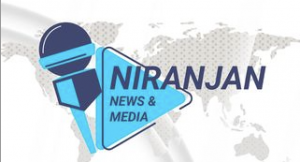The current media climate in India is problematic for many reasons.
For starters, there is a great lack of representation inside editorial rooms. Even though the majority of the nation is not upper caste, the majority of editors and journalists are. Other minorities are similarly poorly represented in newsrooms as well.
The biggest problem however is definitely the relationship between the prevailing news media and the ruling government. Not only are few voices critical of the government, but there are also large downsides to criticizing the State. The recent removal of an Aaj Tak journalist for speaking out against the prime minister goes to show this.
This unhealthy atmosphere regarding the State and its relation to news is a hallmark of authoritarianism and it creates major problems for those hoping to find reliable journalism. When there is so much to lose by raising your voice, why would one choose to speak up? And yet independent news outlets such as The Wire and the Caravan have emerged, opting to offer an alternative to the prevailing currents.
These news outlets, ostensibly representing a free press, are operated mostly on the basis of funding from readers. These valuable patrons, choosing to sponsor a free newspaper, provide it with donations and subscriptions so that the journalism can continue. In this manner, supposedly, the free press continues in India.
However, there are problems here too. For starters, the aforementioned unequal representation in newsrooms is not something that the Wire and the Caravan are exceptions to. Indeed, systemic problems can hardly be solved by creating units that operate in a similar manner to the prevailing system — even if ideologically opposed to it.
Then there is the problem about funding. Isn’t this news liable to the same mistakes made by corporate media houses? Just as those mainstream sources are compromised by their allegiance to multinational corporations, news funded in this manner is culpable to please its readers. Seen this way, the news is simply a good or service like any other under capitalism and is hardly associated with the pursuit of truth.
Yet not all is lost. By creating a bastion for speaking out against the State, the first step towards making news for the people has already been made. In the future, this can pave the way for more inclusive and truly accurate journalism. It is only a matter of seeing whether these outlets maintain their opposition to prevailing trends, or like many others before it, succumb to the pressures of the mainstream media.




